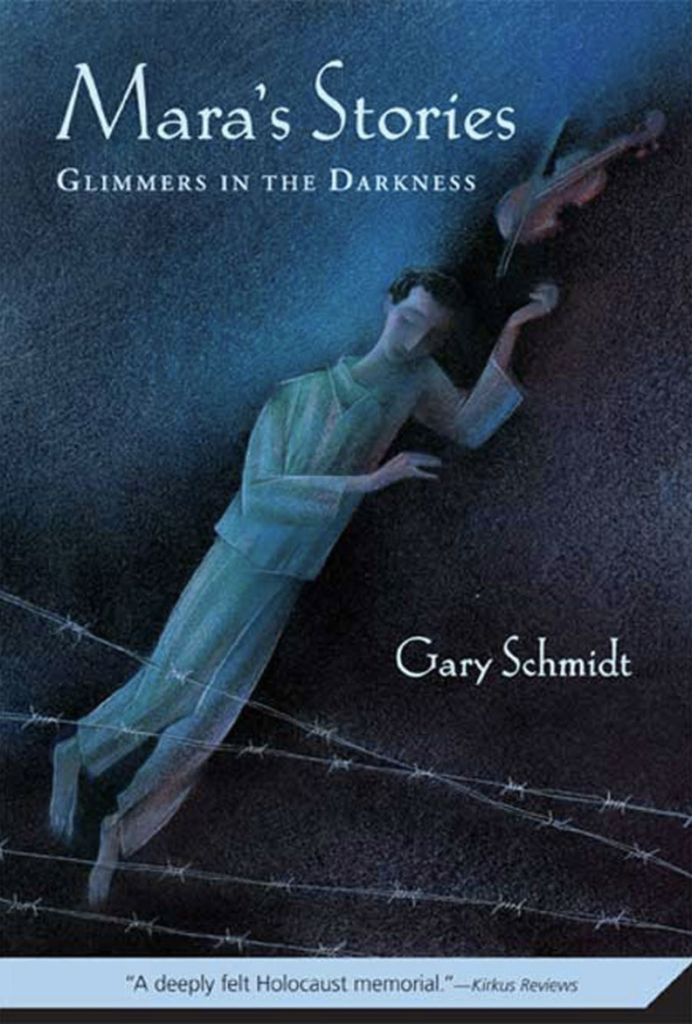“As night falls, the women gather their children to listen to Mara tell her stories. They are stories of light and hope and freedom, stories of despair and stories of miracles, stories of expected pain and stories of unexpected joy – all told in the darkness of the concentration camp barracks.”

I was worried about this one. I was worried that this book would break my heart with grief. I was worried that Schmidt might finally disappoint me and somehow tell this story badly. I was worried that this would fall flat. For some reason, I wanted to love Mara’s Stories. Something in me wanted this book to be powerful and touching and inspiring and good. And, it is. Schmidt did bruise my heart, but he did not disappoint me, and it did not fall flat.
“There are many ways at coming at a truth. But when one turns to the Holocaust, there is one Truth at the core: that six million people – one million of them children – were murdered because they were Jewish. In the most bloody century of human history, the Holocaust stands as the most horrific testament to human evil and darkness . . . Mara is my character, my narrator. Her name means ‘bitter’ in Hebrew and I have given her that name not because she herself is bitter, but because she lives in the bitterest of times . . . The stories celebrate all that is good and strong in the human spirit, all that cannot be destroyed by evil. It is one of the reasons why the stories are powerful for all listeners, all readers, and why the stories are still alive today.”
This small book has 121 pages of stories that were told in and about the concentration camps. Stories that capture the heart and imagination of the listener. Stories that show a kind of resistance to darkness, a fierce clinging to all that makes us human, and a celebration of life. Gary D. Schmidt did extensive research on primary sources from folklorists, Jewish religious scholars, and Holocaust survivors. Some of the stories are happy and some are sad. Some are historical or biblical and some are about the moment right then. But each captures the essence of the people in that time and that place. And each reminds us of how to live – even when we are in the darkest night of our soul.
After the stories themselves, the last 25 pages of the book contain notes from the author about the original stories. Schmidt explains where the original story comes from and how it is told. He explains how he adapted it for this setting and why. For example, The Reply is originally from the stories of Rabbi Shneur Zalman of Ladi. The rabbi died in 1813, so his story is clearly not from the camps. But his story could have been told in the camps. Schmidt explains how he retold the story to replace the Russian chief of police with a Nazi officer. While the setting is different, the moral is the same.
I did sob when I read Mara’s Stories. But I also rejoiced. I will likely never forget The Violinist and the Master.
Schmidt continues to be, in my mind, one of the most impressive authors of our time. His range is incredible and he writes with such beauty. This is another winner from Schmidt. I just wish that this one was available on audio, as I believe it is particularly well suited to that medium.